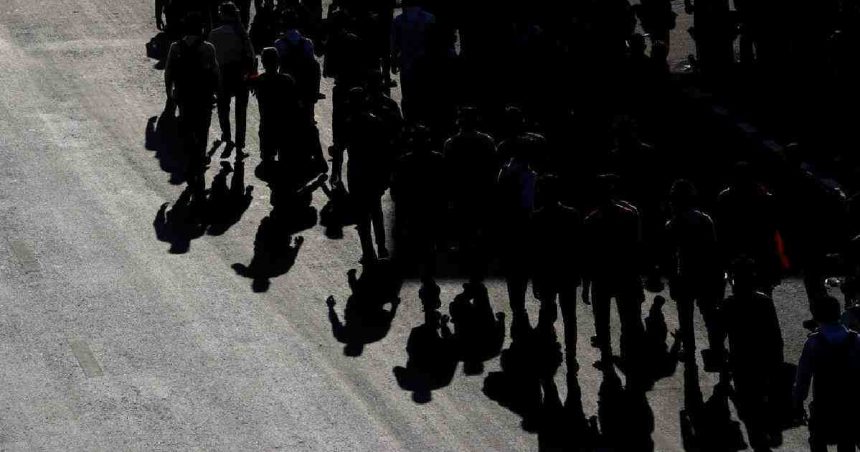In Gurugram, a modern city near Delhi, luxury apartments and expensive cars sit next to slums where poor migrant workers live. These workers, many of them Bengali-speaking Muslims from West Bengal, work as housemaids, drivers, garbage collectors, and daily labourers.
Last month, local authorities launched a drive to catch illegal immigrants, targeting these workers. Hundreds were picked up and sent to holding centres. There, they were asked to prove their Indian citizenship. Many say they were mistreated and even beaten, though police deny this, reports BBC.
“I had my voter and ID cards, but they said they were fake,” said Ather Ali Sheikh, a daily labourer who has lived in Gurugram for 15 years. “I was held for six days before being released.”
The raid caused panic. Many workers left overnight, abandoning homes and jobs. Ather’s wife was seen packing their few belongings into boxes. “Is it because I’m poor, Muslim, or Bengali?” Ather asked. “Why weren’t the rich Bengalis questioned?”
Police insist they are not targeting any community. “Out of 250 people detained, only 10 were found to be illegal migrants,” said Gurugram police spokesperson Sandeep Kumar. “No one was mistreated. The process was fair.”
But the raids have caused problems even in upscale neighbourhoods. With many workers gone, garbage piles up, and residents complain of disruptions. “Our maid and her husband, who was our driver, left. Now we have no help,” said Tabassum Bano, a local resident.
Crackdowns on suspected illegal migrants from Bangladesh are not new in India, but they have become more intense under Prime Minister Narendra Modi. Hundreds have been detained recently, including a Muslim army veteran.
In Assam, many Bengali-speaking Muslims have been pushed back into Bangladesh. In Delhi, about 700 people were picked up in the last six months and sent to border states for deportation.
The fear is growing among the poor Muslim community. “We cleaned their homes for years. Now they treat us like trash,” said Rauna Bibi, a maid. Her husband fled back to West Bengal the day arrests began and didn’t even tell her. “I was scared he had been picked up or worse,” she said.
What hurts her most, however, is the feeling of being unwanted. “I can survive poverty. But if they take us away, I wouldn’t know how to live. This slum, this work—it’s our whole life.”
Police say they are acting under a home ministry order from May, which asked all states to set up task forces and holding centres to detect and deport illegal immigrants from Bangladesh and Myanmar. Detainees have 30 days to prove their citizenship. If they fail, they are handed over to border guards for deportation.
But critics say there is no clear rule for who gets labelled a suspect. “They just target people with Bengali names, Muslim identity, and poor living conditions,” said Aakash Bhattacharya from a trade union.
What’s worse, those released don’t get any certificate proving their citizenship, meaning they can be detained again at any time.
Police say their actions are based on strong clues. “We checked phones and found suspicious contacts from Bangladesh. Some couldn’t explain their family background,” said Sandeep Kumar.
Human rights activist Suhas Chakma says the crackdown isn’t purely religious. “Most people from Bangladesh are Muslim, so they end up being the ones caught,” he said. He also stressed that India needs a proper refugee law to deal with such issues.
Meanwhile, fear grows in slums. Many now sleep with their ID papers under their pillows.
“We already struggle with our lives,” said Rabi-ul-Hassan, a resident of Delhi’s Jai Hind camp. “Now we have to fear being arrested too.”
Three weeks ago, electricity was cut off in the camp after a court said residents were squatting on private land. “Even though the area is marked as a legal slum, they switched off our power,” said lawyer Abhik Chimni.
Since then, residents have lived in darkness, extreme heat, and hunger. “We try to sleep outside, but mosquitoes bite us all night,” said Baijan Bibi. “Sometimes I feel going to a holding centre would be better—at least they have fans.”


